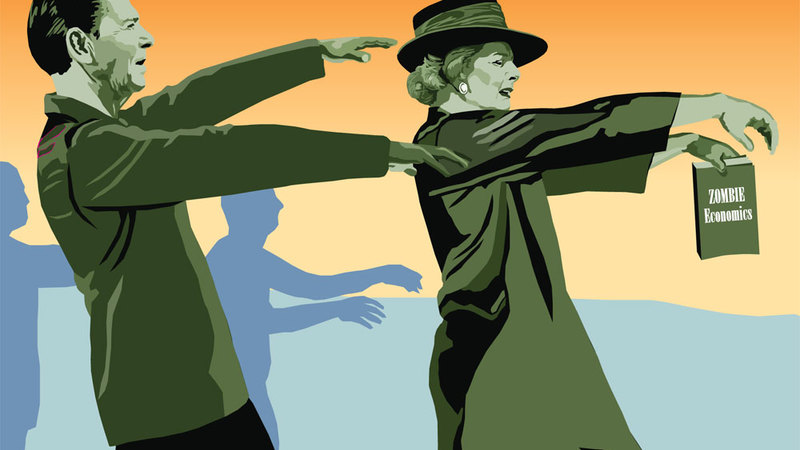- Graphic: Photo: John McCann
What does it mean to critically engage with what you read and why does it matter? Trinity College Dublin Development Issues Series finalist Emily Ramsay investigates microfinancing in development economics – the good, the bad and the neoliberal.

Over the summer I decided to undertake a reading challenge. It was a simple one, read one book every week.
The genre, topic or length was irrelevant. One week could be Victorian Literature and the next a memoir from the Obama administration. However, one week I picked up the New York Times bestseller Half the Sky: How to Change the World, written by Nicholas D Kristoff and Sheryl WuDunn.
It was a crash course in international development and held a large focus on lifting women in the global south out of poverty. The book was well written and easy to read – the perfect introduction into development economics. In particular, I was drawn to the chapter ‘Microcredit: The Financial Revolution.’
However, I came to learn a larger lesson from this book. That being, to engage in academic debate and question how you think about everything you read.
The more I researched, the more I came to align myself with scholars such as Penny Griffin and Jason Hickel who were reflecting on the neoliberal ideology underlying many development policies. In particular I became interested in the role of institutions such as the US-based World Bank in crafting policies that perpetuated the trends of globalisation and financialization. The… dare I bring up the term… Laissez-Faire ideology.
“Contemporary neoliberalism gives particular meanings to human activity through the choices it provides, the regulatory ideals it imposes and the identities it prescribes as most suitable.” – Penny Griffin
Microcredit was presented as a true ‘financial revolution’ and one that was so inherently successful. Through these loans, local communities are being more exposed to market economics through development of small-scale enterprise. However, this presented a troubling situation for me – traditional communities were being almost indoctrinated into an economic rationality that is inherently western. An ideology of privatisation and small-scale enterprise. A major shift from state-based economics to a market-based structure.
Deciding to investigate this was an important step for me personally. Often, when we discuss development economics in everyday conversation we do not engage with the ideological preconceptions that we carry. In particular, the ‘common sense’ knowledge of western market economics.
Penny Griffin’s critical political economy work further engaged me in this debate. The feminist perspective of her political economy work is persuasive, making you think more critically about economic structures. In particular the hegemony that stems from neo-liberal economics.
A proper understanding of the economics that lie behind neoliberalism would allow us to identify – and to reject – ideology when it masquerades as economic science.” – Dani Rodrik
I believe that there is a big problem with globalisation, as it grows into such a common-sense phenomenon, and one that often goes un-questioned. The opening up of national economies into the world market has become a narrative that is readily subscribed to.
Economic models of development should be adept to the society in which they are implemented. As pointed out by both Dani Rodrik and Penny Griffin, neoliberal economics is not a perfect system and is instead latent with ideological preconceptions.
When researching I reflected on the experiences of APWLD (Asia Pacific Forum on Women, Law and Development). This forum is based out of Indonesia and takes a strong stance “against neoliberal trade and investment regimes that empower corporations at the expense of the peoples and the planet.” Their personal experiences placed this academic debate into context for me and pushed me to humanise this argument.
Overall, this made me believe that development economics is far more successful when it considers the culture and history of a nation. A reading challenge with an object of fast reading taught me to slow down and critique my own opinion, position myself in academic debate and reflect on what development means to me.

Development Economics – Question What you Read
What does it mean to critically engage with what you read and why does it matter? Emily Ramsay investigates microfinancing in development economics – the good, the bad and the neoliberal
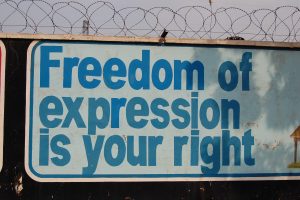
The Expression Recession
From the 2019 Trinity College Dublin Development Issues Series Final Five, Ronan Daly explores the erosion of freedom of expression and the potential subsequent impacts
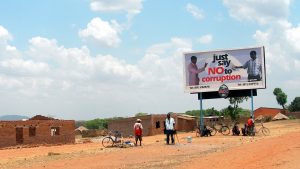
Corruption Redefined
Conor O’Brien, a 2019 Trinity College Dublin Development Issues Series Final Five finalist, explores corruption in its many guises.
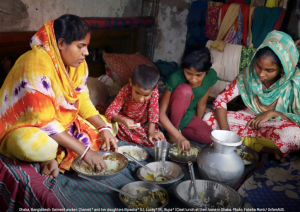
Dress For Success: Supporting the Sustainable Development Goals Through The Adoption of Ethical Shopping Habits
From the 2019 Trinity College Dublin Development Issues Series Final Five, Emma Beatty dresses for success with her Sustainable Development Goals shopping skills and takes on fast fashion.

How your favourite Instagram Influencers are Contributing to Global Inequality
The winning blog entry for the 2019 Trinity College Dublin Development Issues Blog Series is Moya McDermott on the true cost of fast fashion indulgences
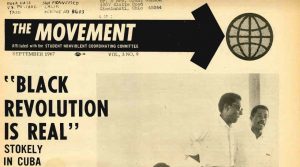
Understanding Development within the Black Power Movement
A final-seven finalist in the 2018 Trinity College Dublin and developmenteducation.ie Development Issues series, Grace McGinnis looks at the Black Power Movement in the United States, and beyond.

